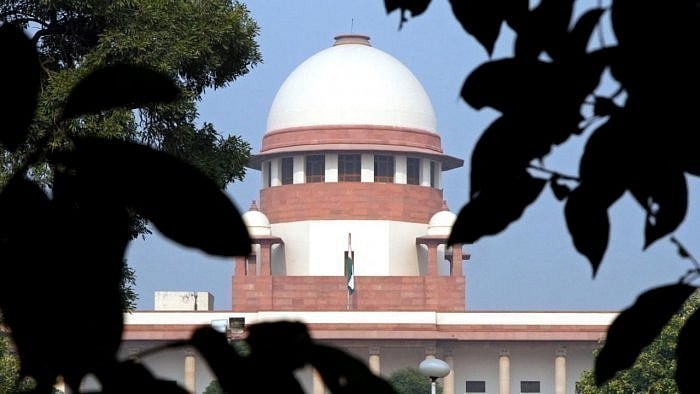
The Supreme Court of India.
Credit: PTI File Photo
New Delhi: The Supreme Court has said if the decision of the authority to discharge a serviceman is based on a medical report, which is devoid of reasons, as against the mandate of the rules, such an act, especially when it denies any post discharge benefit, will be rendered invalid in the eyes of law.
A bench of Justices Abhay S Oka and N Kotiswar Singh said the opinion of the medical board, which is to be treated as final and binding as per regulations, has to be supported by reasons for arriving at the conclusion about the nature of medical disability, before the same can be acted upon for the purpose of discharge of a serviceman.
"In our opinion, the requirement to give reasons by the medical board is crucial, critical, decisive and necessary for the purpose of granting or denying disability pension and it is not a mere formality, but a necessary material on the basis of which the pension sanctioning authority has to decide about the grant or refusal of disability pension," the bench said.
The denial of disability pension as otherwise, a valuable right of a serviceman to get retiral benefits who has rendered long years of service for the nation would be unjustly deprived, the bench said.
The court allowed an appeal by Rajumon T M against the 2013 order of the Armed Forces Tribunal, Regional Bench, Kochi, which rejected his plea against the decision of 1999 to deny him disability pension after being discharged due to Schizophrenia.
The appellant was enrolled in the Indian Army on November 17, 1988. The medical board held on March 30, 1998 at the Command Hospital, Western Command, Chandimandir noted that the onset of the invalidating disease was in August, 1993 during which period the appellant had served in a peace station.
The board also noted the disability was neither attributable to nor aggravated by military service and the said disease of the appellant was constitutional in nature and not connected with the service.
As per the Regulation for Medical Services for Armed Forces, the court said, it is immaterial that the cause giving rise to the disability occurred in an area declared to be field service or active service area or under normal peace conditions.
It noted the appellant was not suffering from the disease of Schizophrenia when he entered the service. Thus, it would be deemed that this disease arose while in service as provided under Regulation 423 (e), the bench said.
The court found no reasons have been assigned at all as regards the nature of disability on which the opinion of the medical board was based that the appellant was suffering from constitutional personality disorder, though it has been specifically mentioned under the regulations, it should state fully the reasons with regard to the disability.
The court said the requirement to give reasons by the medical board about their opinion is absolutely necessary as also required under Regulation 423(d) for the reason that the fate of the future career of the serviceman is going to be decided by the medical board, which is to be treated as final as regards the cause of disability and the circumstances in which the disability originated.
"If the serviceman is discharged from service or denied the disability pension on the basis of a medical opinion which is devoid of reasons, it would strike at the root of the action taken by the authority and such action cannot be sustained in law," it said.
In the 31-page judgment of May 7, 2025, Justice Singh on behalf of the bench noted, no reasons have been given by the medical board for their opinion that the appellant was suffering from Schizophrenia which is of a constitutional personality disorder and all the relevant columns have been left blank in the forms.
After noting devoid of clinical details as regards personal and relevant family history, specialist report and treatment in the report, the bench said, "We are of the view that in absence of the said particulars, the opinion given by the medical board that the disease is a constitutional personality disorder cannot be sustained being violative of the mandate contained in Regulation 423 (d) of the Regulation."
In legal terms, the opinion of the medical board not being based on any reason or material is to be treated as arbitrary. In absence of the ground and materials to arrive at a particular conclusion, such a decision of the medical board would be considered as having arrived at without application of mind, the bench said.
The provisions for grant of disability pension are in the nature of a beneficial scheme intended to provide succour to servicemen in hard times who have been discharged from service after having served the nation with dedication. Accordingly, a liberal approach must be adopted while construing such beneficial provisions, the bench said.
The court felt a much more liberal view ought to be adopted while dealing with the cases of discharge of servicemen from service on account of suffering from Schizophrenia as they may face several impediments and difficulties in proving the causal connection of the said disease with the military service.
The court held that if any action is taken by the authority for the discharge of a serviceman and such a person is denied disability
